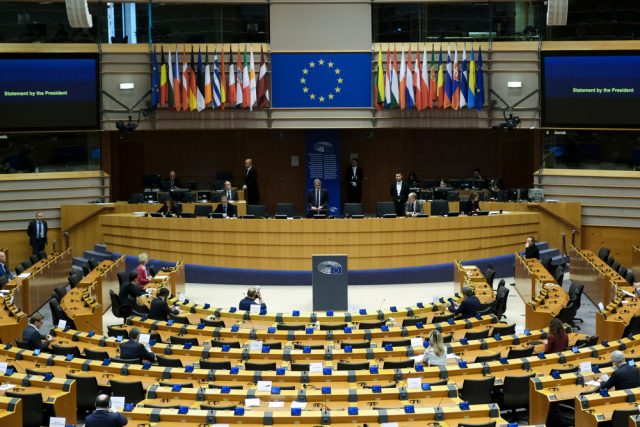
On 25 January, the European Union will hold the European Internet Forum in Brussels as a regional event to discuss the contribution of technology to the environment and the fight against climate change. However, the main theme of the event will be sustainable digitalisation.
The European Parliament will bring together experts from the technology and environmental industries to discuss these issues and provide ideas for a European Union that are trying to modernise and adapt to the changes of the 21st century, without undermining its more traditional objectives. This meeting will be an example of the growing interest in making digital transformation compatible with environmental protection within the parameters of the EU-27.
The EU is seeking measures that promote the region’s digital transformation without impacting the environment, so as not to legislate against its environmental objectives of the Green Pact and the Circular Economy Plan. The EU-27 is trying to put the circular economy on an equal footing with the fight against climate change. Internet versus planet? Does digitalisation really affect the environment?
The concept of sustainable digitisation has been defined by the European Internet Forum as a process of modernising the digital economy in a sustainable and environmentally friendly way over time. To answer the above question, the Internet affects the protection of the planet insofar as digitisation involves products that disrupt the environment. In other words, digitisation involves the manufacture, use, and, above all, disposal of modern electronic devices, which leads to an increase in greenhouse gas emissions, an increase in energy consumption, and pollution at times of resource extraction, as well as the generation of waste resulting from the above processes.
The NGO Greenpeace has already warned of the environmental impact of digital energy on the planet. According to its Clicking Clean report, published in 2017, 7% of the electrical energy consumed on Earth comes from the digital sector; and the same document estimated that, in 2040, the electricity consumed will rise to 14%. Similarly, the European Commission also warned that digital technologies account for 8% to 10% of energy consumption within the region, as well as 2% to 4% of greenhouse gas emissions.
This data is what the European Union uses as an argument for launching such initiatives, and why sustainable digitalisation has become a key issue for the European Parliament and thus for the European technology sector, which is eager to see what measures the EU-27 is seeking to adopt in this area and what the experts invited to the event on 25 January will bring to the table.
The European Internet Forum is part of the Digital Decade Roadmap, the European Union’s 2030 objectives in the field of technology, and its strategies for cooperation and monitoring progress in this sector. The EU’s intention with this programme was to help “everyone in the EU to make the most of the digital transformation”. The roadmap already included sustainability as one of the key pillars of its composition. Among the various rights and duties of EU citizens, promoting the sustainability of the digital future is one of them.
The declaration required that technological and digital devices should support sustainability and the ecological transition of the region. In addition, the Commission’s report emphasised the importance of users being aware of the real impact their consumption has on the environment.
Spain has anticipated European measures and has presented one of the most innovative initiatives in terms of sustainable digitalisation. The Tech & Climate challenge of the Digital Future Society of Catalonia in collaboration with the Agenda 2023 Commissioner of the Barcelona City Council has presented competitions to encourage the reduction of the environmental footprint of the technology sector. The winning initiative in 2020 was a tool to assess the impact generated on the environment when large amounts of energy are used, in order to develop energy policies accordingly, led by the Universitat Oberta de Catalunya (UCO).



 Subscribe
Subscribe